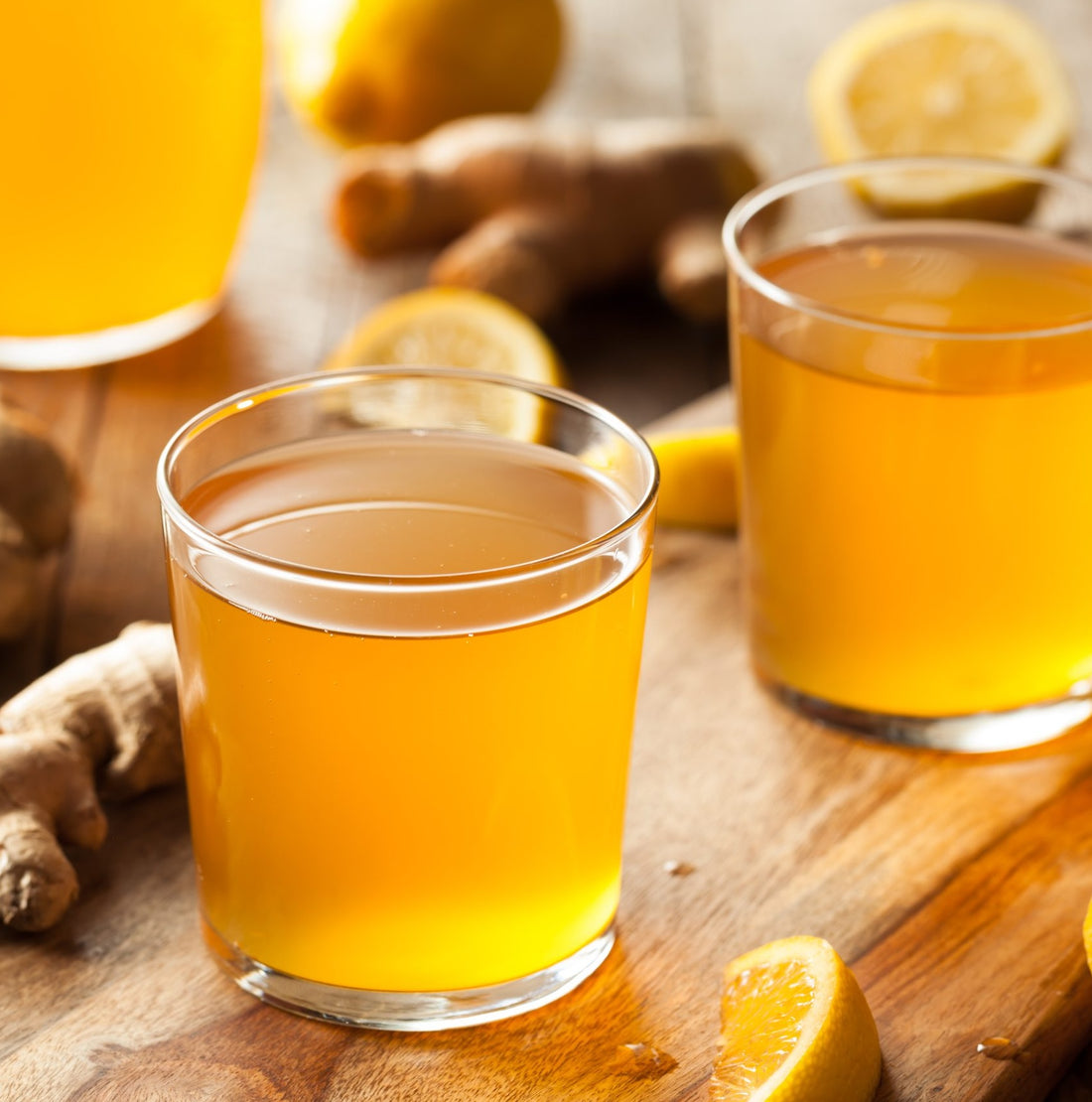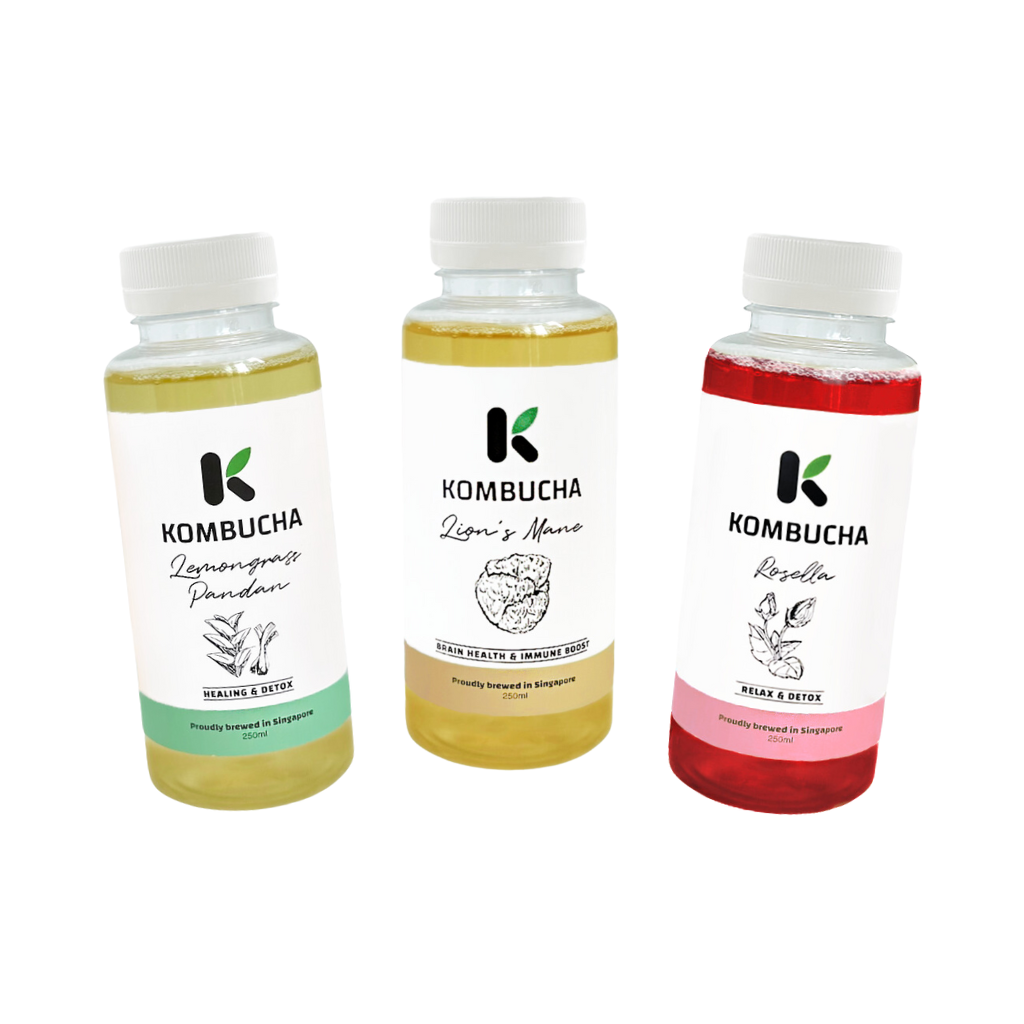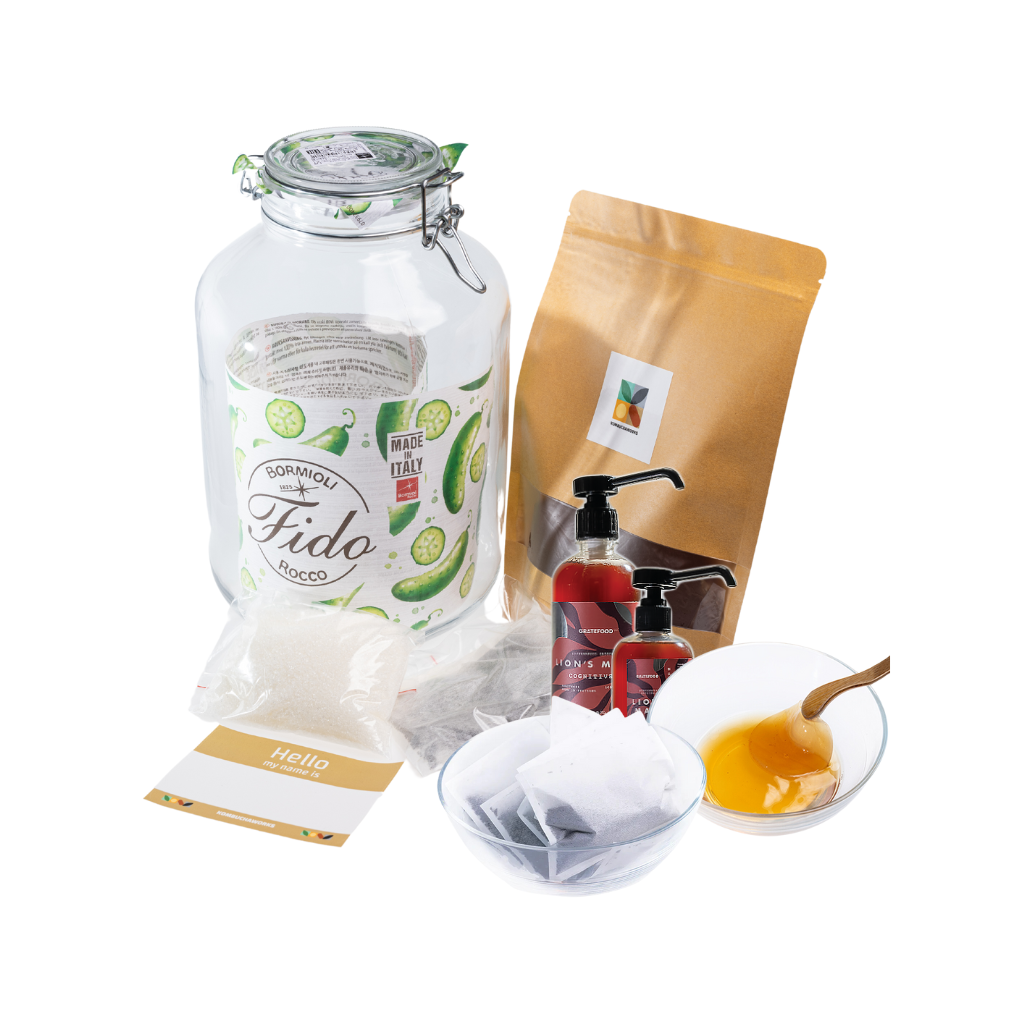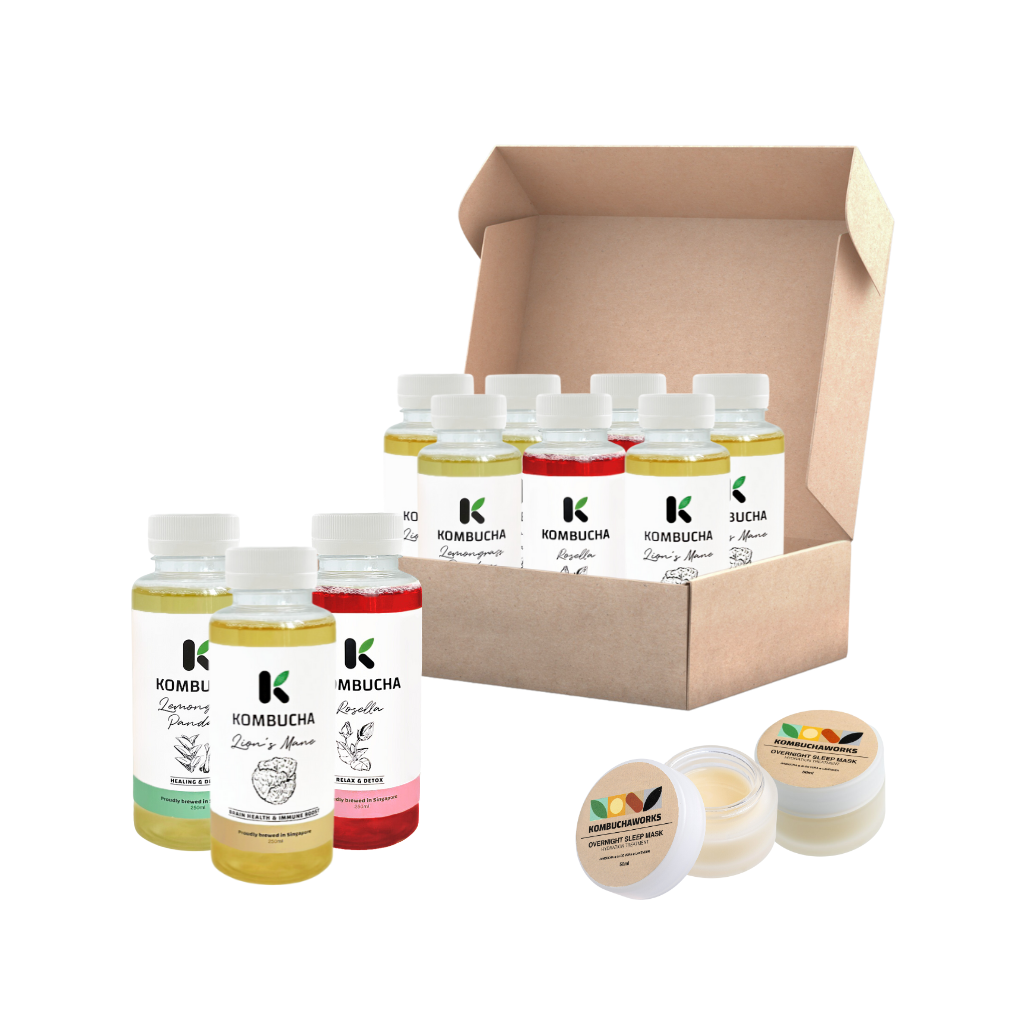Everyone has varying reactions to their first kombucha beverage. Some may take a sip and decide that’s their first and last time! For some however, it’s the start of many kombucha drinks to come. This may have something to do with the taste or how one’s body reacts to the drink. Regardless, kombucha is unquestionably one of the most sought-after beverages today due to the numerous health benefits it provides.
Kombucha is known for its sweet, tangy and refreshing taste. This probiotic-rich drink is very helpful for the digestive system, much like yoghurt and the other fermented foods. Kombucha is loaded with vitamin B, minerals, and organic acids which have antimicrobial properties that inhibit the growth of harmful bacteria. They also aid the removal of toxins in the liver. These acids are also known to help transport polyphenol, antioxidants that help lower inflammation that causes illness and certain conditions in the body.
There are so many benefits one can get from drinking Kombucha but just how much kombucha can we really consume?
For People Who Are New To Kombucha
If you have never had kombucha and are having second thoughts about it, starting with small amounts may be a good way to go. For those with sensitivity issues, the sources of your kombucha should always be considered.
People who are new to taking kombucha can start taking 120ml or less each day and gradually increase this volume in time. It’s a way to see how the body would react to the drink. Some new kombucha drinkers have reported a detoxifying effect with mild symptoms — such as headaches or digestive inconvenience that goes away after a short while. Some people may find this tolerable, while others may not. So it’s best to listen to the body and see how it reacts.
Can People With Diabetes Drink Kombucha?
A study in diabetic rats found that kombucha slowed down the digestion of carbs, which leads to reduced blood sugar levels. Junbucha, made from green tea, is likely to be even more beneficial, as green tea itself has been shown to reduce blood sugar levels.
Although sugar is a key ingredient to brew kombucha,most of the sugar will be consumed by the yeast during fermentation. Having said that, do take note that some brewers do add additional sugar to flavour the kombucha. It is advisable for a person with diabetes to check labels of kombucha for its sugar content and to consult his doctor when in doubt.
Can Pregnant and Breastfeeding Woman Drink Kombucha?
Since kombucha is made by fermenting sweetened black tea, caffeine is present in most kombucha. The amount of caffeine depends on the variety of tea used - black teas tend to contain more caffeine and green teas tend to have a lighter amount of caffeine.
While Kombucha is usually commercially sold as a “non-alcoholic” beverage but, because kombucha is a fermented beverage and alcohol is a natural by-product when yeast consumes the sugar, it can still contain very small amounts of alcohol (no more than 0.5%) and kombucha produced by home-brewers tends to have a higher alcohol content.
It is strongly recommended to consult with a doctor to discuss any concerns before taking kombucha, as cases may vary from one person to another.
For People With Oral Health Issues
As mentioned at the start, kombucha contains a variety of organic acids. While these acids are good for our body, it can also cause discolouration and wear down some tooth enamel, making one more susceptible to sensitive teeth.
To avoid this, use a straw (we recommend high quality stainless steel or glass straw) to make sure that it reaches behind your front teeth so that the kombucha does not come into contact with your front teeth as much as possible. Taking a rinse by wishing a mouthful of water once you finish your kombucha will also help to neutralize the acidic environment in your mouth.
How Much is Too Much Kombucha?
The probiotics and good bacteria in Kombucha have been found to be beneficial to one's digestive health. But when you consume too much, it can cause some side effects. Taking more than 350ml a day can result in headaches, nausea, gastrointestinal distress, or ketoacidosis. It’s also best to read the labels on your drink to determine any ingredients that are not suitable for you.
We know that kombucha can be irresistible, especially during a hot afternoon. It is best to limit it to 1 glass (240ml) per day. It’s also important for you to read the labels on your drink to determine any ingredients that are not suitable for you.Those with weakened immune systems or chronic diseases should always check with their doctors before drinking kombucha.
Try It For Yourself!
For newbies who want to go through their kombucha journey, never be discouraged on your first try.
Getting the flavoured Kombucha instead of the unflavoured ones and serving it chilled would help one get accustomed to the taste of Kombucha. We would also recommend trying Junbucha, a light,delicate with floral notes and less tart version of kombucha that most people find pleasing.
Just as people have different reactions to kombucha, every kombucha drink is also unique and there’s always a kombucha for everyone!





